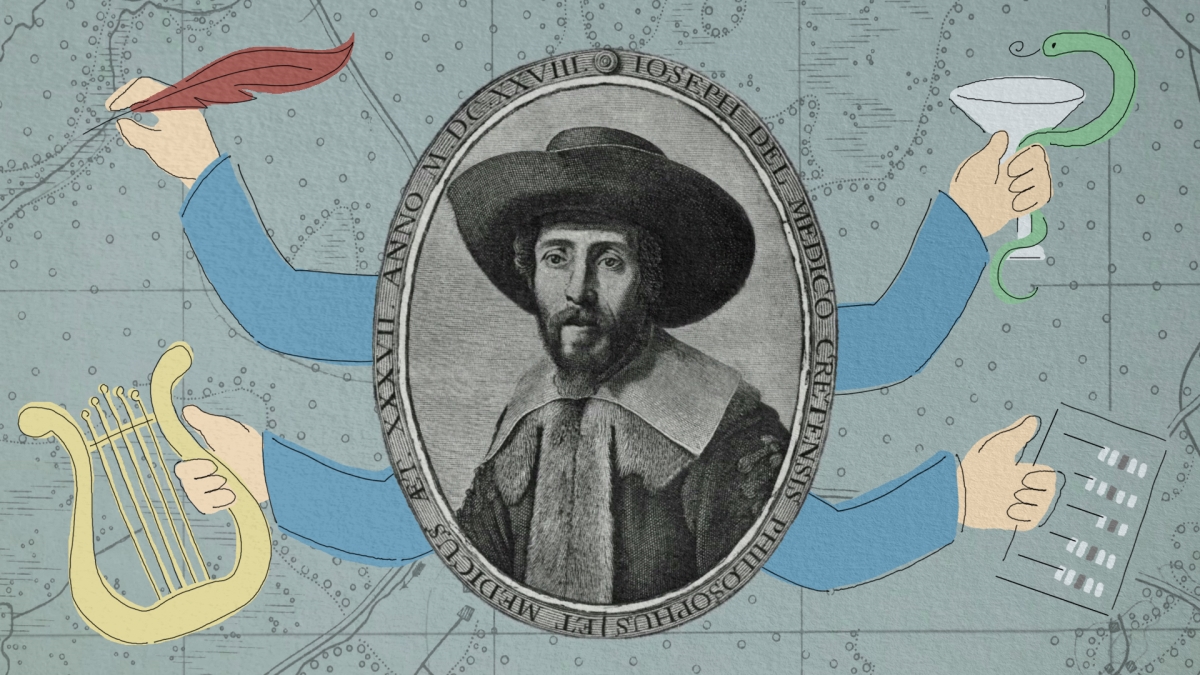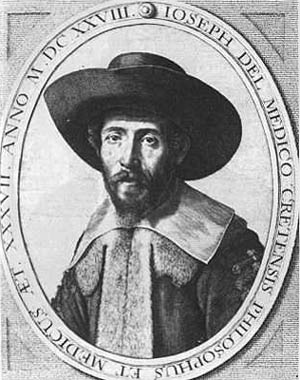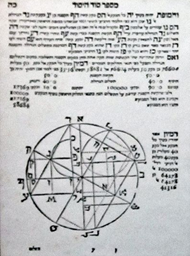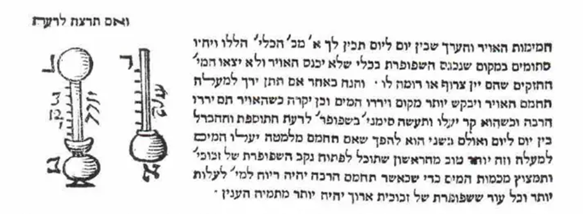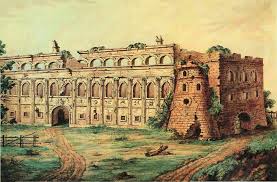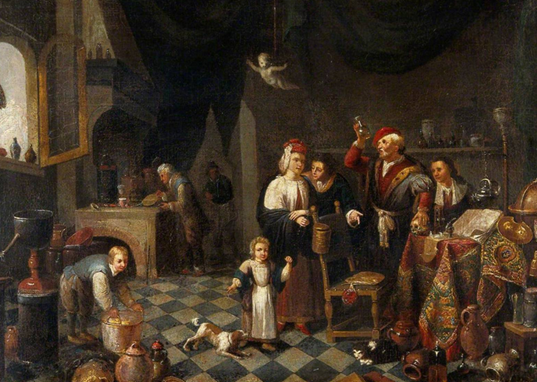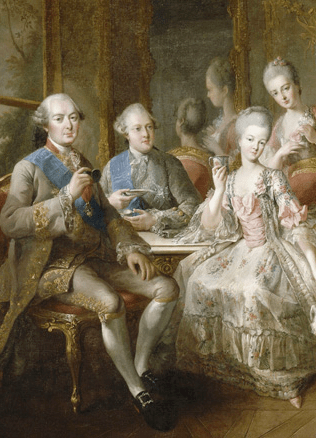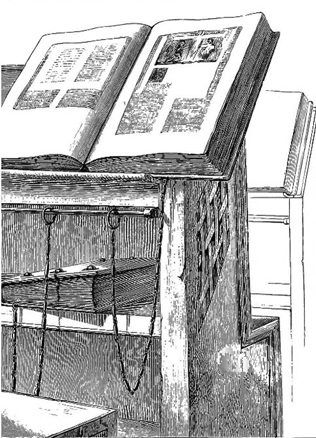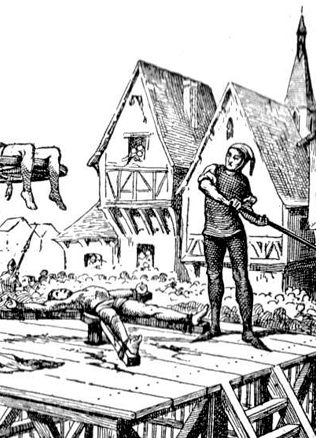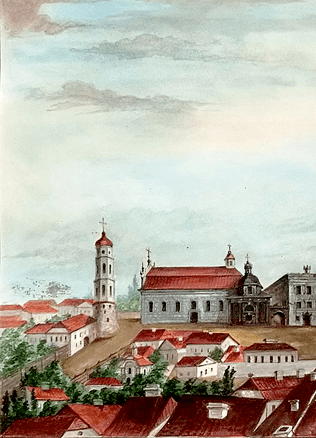The Joys and Sorrows of a Foreign Doctor in Vilnius
It seems unbelievable, even sensational, as some researchers maintain, that one of the brightest celebrities of the seventeenth century Europe, a physician, mathematician, writer, Talmudist, astronomer, music theorist, and philosopher Joseph Solomon Rofe (1591–1655), widely known as Delmedigo, not only visited but also worked in Vilnius. For nearly five years.
From 1620 to 1624, he served as a personal physician to Duke Krzysztof II Radziwiłł. Surely, only the Radziwiłł, widely known as the uncrowned rulers of the Grand Duchy of Lithuania, could afford hiring a professional of international standing.
Crete – Italy – Lithuania
On the other hand, it was Delmedigo’s fascination with the way Lithuanian Karaites viewed science and his personal ties with their community in Trakai that encouraged the prominent Jew to settle in a little-known land. Remarkably, his most famous surviving work, Sefer Elim (Palms), is the direct result of his communication with the Karaites in Trakai. The five-volume writing is based on Delmedigo’s answers to more than 80 questions posed by no other than his friend, Zakah ben Nathan.
Contemporaries were hardly surprised that a Jewish medical specialist was hired to attend to Duke Radziwiłł and was payed a high salary.
Do You Know?
University trained Jewish doctors renowned for their medical skill all over Europe. Usually they spoke several languages, had studied ancient medical practices, and were proficient in various methods of treatment. Their quotes from Kabbalah added a touch of mystical aura, especially when traditional healing did not work.
“
Delmedigo was a scion of a wealthy aristocratic family. In childhood he received excellent classical education and became a student of the University of Padua at the age of fifteen. He studied mathematics, astronomy, philosophy, and medicine.
Born and brought up on the island of Crete, Delmedigo was a scion of a wealthy aristocratic family. In childhood he received excellent classical education and became a student of the University of Padua at the age of fifteen. He studied mathematics, astronomy, philosophy, and medicine. Galileo Galilei, the famous polymath, exerted a great influence upon him.
According to historical sources, by the summer of 1620 Delmedigo arrived in the “northern lands”, as he called the Grand Duchy of Lithuania in his letters to Zerah ben Nathan, who had sent Delmedigo a fur coat to protect him from the cold in “those lands of bitter chill.”
The spectacular salary for the doctor
Once in Vilnius, Delmedigo lived in Duke Krzysztof II Radziwiłł’s palace, between the present-day Tilto Street and River Neris. The duke, who harboured passion for alchemy, hired Delmedigo as a respectable doctor, but his fame as an experienced alchemist also played a role: he treated alchemy as one of the natural sciences.
“
The duke, who harboured passion for alchemy, hired Delmedigo as a respectable doctor, but his fame as an experienced alchemist also played a role: he treated alchemy as one of the natural sciences.
Nevertheless, medical practice was the main source of income for the Crete-born Jew in Lithuania. As all other professional physicians, Delmedigo was expected to inspect his patients, interview them about their ailments, check pulse, perform urine tests, outline a diagnosis, and administer treatment. The treatment itself, however, was carried out by lower-rank medics, such as barbers, surgeons, and pharmacists.
According to Delmedigo, human body is “fragile and tender” just as a musical instrument, which makes the doctor a musician. “Whenever an amateur touches it, the beauty of the melody disappears, strings break, cavities fill in and the unique balance disappears. It is extremely difficult to repair it afterwards, even if the master has wisdom and a good ear.”
For his work Delmedigo, apparently, received a large remuneration. Krzysztof II Radziwiłł employed several physicians and all of them were paid better than any other of his courtiers. Their yearly salaries varied between 300 and 900 złotys, and this does not include various gifts.
Travel as a lifestyle
“
He visited the royal palace and the academy in Kraków, took part in astronomical research in Toruń, met fellow alchemists in Lublin and, in late 1620, travelled to Livonia.
Since Krzysztof II Radziwiłł was a keen traveller, Delmedigo was forced to accompany him. He visited the royal palace and the academy in Kraków, took part in astronomical research in Toruń, met fellow alchemists in Lublin and, in late 1620, travelled to Livonia. He later wrote: “During all those years that I spent in Rus’, Poland, and Lithuania, I had not a single week of rest. Constantly I had to go to see the sick in towns and hamlets.”
Upon recalling his medical practice in Lithuania, he noted that “servants of dukes and nobles, young and old, stood at my door since the early morning ready to take me from town to town in their carts. They would inundate me in their gifts, flatter me and surround me with respect thus interrupting my meditation, wasting my precious time, and messing up important assignments.”
The newcomer interested in science
Although Delmedigo’s professional life proved eventful during his time in Lithuania, occasionally he found time for his other interests. Invited as a guest to Vilnius University in 1624, he took part in astronomical research and a local astronomer showed him “all instruments and books on mathematics.”
“
It is very likely that around 1621, while still in Vilnius, Delmedigo made a thermometer using a liquid-filled glass tube. He described and drew his invention in Ma’yan Ganim (Garden Fountains), first printed in Amsterdam in 1629.
It is very likely that around 1621, while still in Vilnius, Delmedigo made a thermometer using a liquid-filled glass tube. He described and drew his invention in Ma’yan Ganim (Garden Fountains), first printed in Amsterdam in 1629.
Moreover, while in Lithuania, Delmedigo wrote two books dealing with logic and metaphysics.
The last piece of evidence of his stay in Vilnius is retained in a letter his student sent him on 23 July 1624. The student Juzef ben Judah asked Delmedigo to provide rational evidence of God’s existence and the immortality of the soul.
Raimonda Ragauskienė
